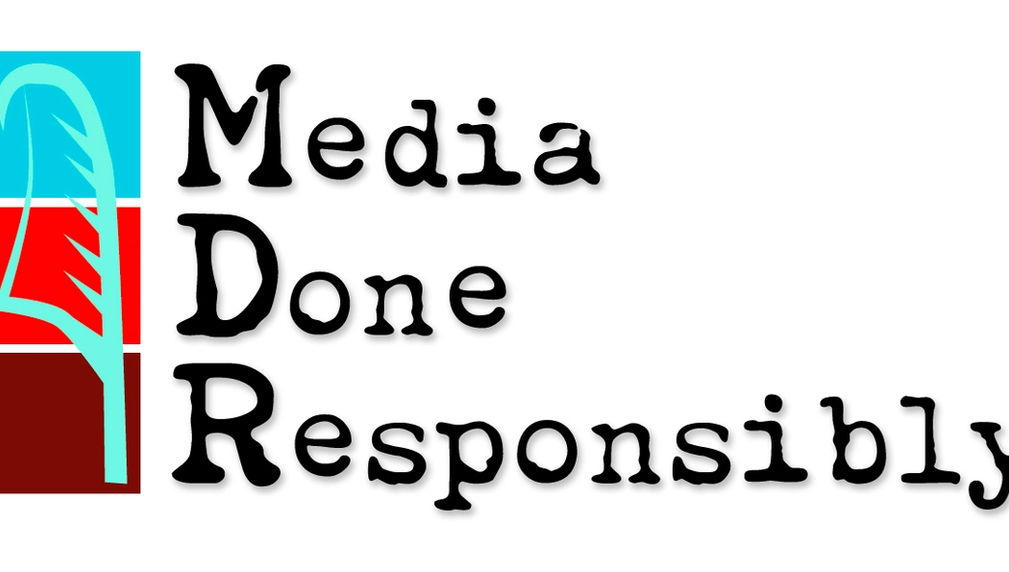Media Literacy for Mental Health!
MDR provides education, voice and agency to youth change-makers. We use a 3-pillar approach. Media literacy supports mental health by empowering young people with tools to navigate the 12+ hours of media they consume daily; media production empowers marginalized artists to share stories of their humanity; and media advocacy builds community through art and civil dialogues.

What is the primary issue area that your application will impact?
K-12 STEAM Education
In which areas of Los Angeles will you be directly working?
Central LA
East LA
San Gabriel Valley
San Fernando Valley
South LA
South Bay
County of Los Angeles
In what stage of innovation is this project, program, or initiative?
Expand existing project, program, or initiative
What is your understanding of the issue that you are seeking to address?
5 college students sat in a circle in their classroom. This was feedback day. They'd completed 6 weeks of media literacy training, then spent the last two weeks providing workshops for middle and high school youth in their neighborhood. They were peer mentors with Media Done Responsibly. One group presented “Cyberbullying and Suicide” to Black and Latina 7th grade girls, some of them foster youth. "She just started crying." One of the 12- year-old girls had been the target of cyberbullying when she was in 6th grade and had attempted to take her own life. The research and statistics suddenly became real. Cyberbullying is affecting approximately 37% of teens online. Black and Hispanic youth are associated with increased odds of depression due to unconscious social media consumption. Only 5% of Media Literacy Practitioners are Black and 3% are Hispanic or Latino. MDR provides culturally responsive media literacy education using a peer and near-peer model.
Describe the project, program, or initiative this grant will support to address the issue.
Literacy MDR provides media literacy education and workshops for youth using a peer and near-peer model. Annually, over 300 L.A.-based college students analyze scholarly research on the social-emotional impact that unconscious daily media consumption has on marginalized youth. These students synthesize this data to create and lead hands-on, interactive media literacy workshops for middle and high school youth. Production MDR seeks to develop pathways to employment and professional development for youth. We provide paid internships for college participants. Our Apprenticeship Program connects interns to professional coaches within their fields of study. Our MDR Virtual Film Festival is a space for marginalized communities to showcase their stories and network with industry professionals. For our 2021 launch, we secured representatives from Ryan Murphy’s Half Initiative, TIME’S Up, USC Annenberg’s Inclusion Initiative, Pearl Street Films, Participant Media, Red Table Talk, along with award-winning filmmakers to coach 150+ diverse filmmakers in strategies for success in film and entertainment. Advocacy The MDR Arthouse & Café is a digital space where we host civil dialogues. Young people develop and facilitate online group conversations that bring together sometimes polarizing viewpoints while focusing on listening, empathy and shared understanding.
Describe how Los Angeles County will be different if your work is successful.
LA will provide safe online spaces. MDR equips youth with critical thinking and social-emotional skills necessary to accurately decode information online and access digital safe spaces. Our aim is to engender value-based and critically informed decisions in life as they engage in discussions about social issues and their personal beliefs. During the grant period youth will have healthy media and lifestyle alternatives; develop media + digital literacy skills; become critical thinkers, decision makers, conscious consumers and creators of media in the Digital Age; + learn to network and build healthy youth-adult relationships that support their professional growth. Long term, as we engage youth with programming, curriculum, and learning experiences that provide cultural relevance, real-world application, mentoring, community networking, a stronger sense of self, + increase social consciousness they are more likely to use new knowledge toward positive community action + social change.
What evidence do you have that this project, program, or initiative is or will be successful, and how will you define and measure success?
MDR has served over 15k underrepresented youth throughout LA County; and by measures of participant interviews, anonymous surveys, program attendance reports, and data collection of the number of schools participating, MDR programs increase strategies for anti-bullying, body positivity, consent conversations and digital literacy by 100%. MDR will continue to measure its impact by the following: Conduct pre- and post- surveys, student and teacher interviews, and media literacy assessments to evaluate changes in attitude and behavior as well as media literacy aptitude; Keep a database of classroom instructors requests for mentor support and retention of teachers; Collect data on the number of participants who attend our virtual events via our digital platforms and applications (i.e. Airmeet, Constant Contact); Collect monthly social media reports; and Record testimonial reviews from MDR staff, interns and community members.
Approximately how many people will be impacted by this project, program, or initiative?
Direct Impact: 325
Indirect Impact: 11,000